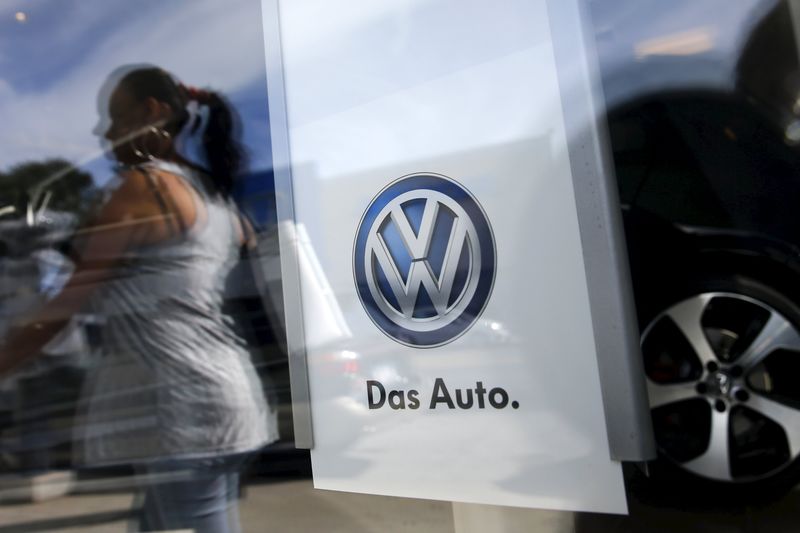By Divya Chowdhury and Victoria Waldersee
DAVOS, Switzerland (Reuters) -Volkswagen needs to increase investments in the U.S. to hit its market share targets, and cut costs in Europe to achieve profitable growth, its CFO Arno Antlitz said on the sidelines of the World Economic Forum in Davos on Thursday.
The carmaker now aimed to “double” its market share in the U.S., currently around 4%, by 2030, Antlitz said, a dampened ambition from its previous goal of a 10% share by then.
In its home market of Germany, the hard work of implementing cost-cutting measures agreed with unions last month was just beginning, Antlitz said, emphasising that the plan would fail if factories did not speed up their output.
His comments reflect the vexing landscape of challenges faced by Volkswagen (ETR:) in its key markets, with the threat of tariffs by newly inaugurated U.S. President Donald Trump coming on top of heavy investor pressure to boost competitiveness at its German sites.
The CFO, in charge of the Volkswagen Group’s finances since 2021, said the company’s challenges mirrored those facing Germany and Europe’s wider industrial sector, from securing access to batteries and chips, to improving productivity and return on investment.
Fixed costs had to come down before the company, and indeed the region, could begin to grow profitably, he added.
“It’s a pattern: what’s right for Volkswagen might be right for Germany and also right for Europe,” Antlitz said.
AIMING FOR MORE ‘VALUE-ADDED’ IN US
The CFO declined to comment on how the carmaker would react if U.S. President Donald Trump follows through on threats to impose tariffs on imports from Europe, Mexico and Canada, saying it was “too early”.
Volkswagen’s North American production chain places it directly in the firing line for possible tariffs from Trump.
Its Audi and Porsche brands have no U.S. manufacturing base, its VW passenger car brand’s U.S. sales consist mainly of imports from its Mexican plant, and its battery cell plant under construction in Canada was set to deliver batteries to the United States.
The carmaker has already committed around $20 billion to the North American market, including $10 billion at its Chattanooga plant, $5 billion for a joint venture with EV maker Rivian (NASDAQ:) and $5 billion for its Scout subsidiary.
“We need additional initiatives … to double market share, you have to be even more local,” Antlitz said when asked whether Volkswagen plans to expand its plant in Chattanooga, Tennessee.
“We are strong in Europe, but we need to do more ‘value-added’ in the U.S.,” added Antlitz, listing research and development as a potential area for investment.
“But we have to decide on the project first,” he told the Reuters Global Markets Forum, declining to give further details.
The carmaker plans to bring in range extenders, small combustion engines which charge an EV battery to extend its range, into more of its models, Antlitz said, in an attempt to appeal to customers who are hesitant to make the switch to EVs.
The technology, which is gaining popularity in China, is already planned for some Scout models.
(Join GMF, a chat room hosted on LSEG Messenger, for live interviews: )
Read the full article here


